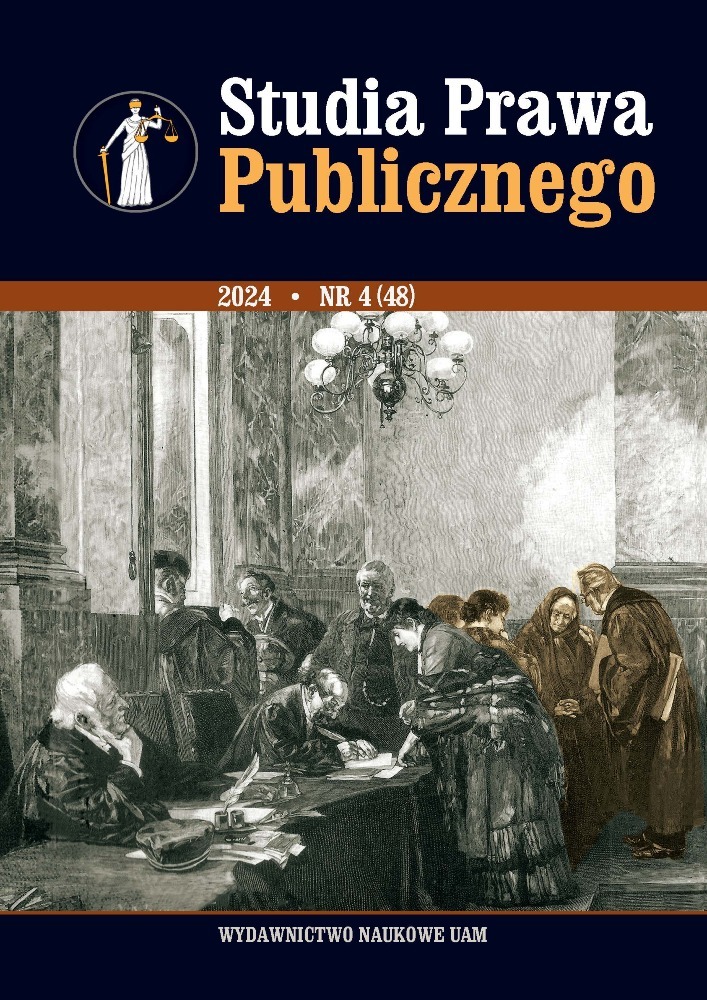Abstract
This article discusses the organizational dependence of cultural institutions on their organizers, i.e. ministers, heads of central offices and local government units. The cultural organizer fulfils the role of administrator of a cultural institution, as its existence depends on him. First, he or she defines the purpose of the cultural institution, then issues an act on its establishment (in which its object of activity is defined, inter alia), adopts its statutes, equips the institution with property and resources to start and conduct its activity, appoints and dismisses its director, finances it, and finally may merge, divide, co-manage the cultural institution or liquidate it. The organizer is also obligated to provide the cultural institution with the resources necessary to start cultural activities and to maintain the facility in which those activities are carried out. The paper argues that the organizers of cultural institutions often treat them as their property, interfere in their activities, use their property free of charge and assign them tasks arbitrarily, without any legal empowerment. The statutes and other acts of selected cultural institutions analysed here, as well as the jurisprudence of administrative courts, allow us to conclude that cultural institutions still do not have organizational independence, and in fact their organizational dependence on the organizer is considerable, and consequently their duties, which they are obliged to fulfil without any basis for doing so, are also high.
References
Ablewicz J., Misje i cele instytucji kultury, „Studia Prawa Publicznego” 2024, nr 3(47), s. 9–37. DOI: https://doi.org/10.14746/spp.2024.3.47.1
Gajewski S., Art. 8, w: S. Gajewski, A. Jakubowski, Ustawa o organizowaniu i prowa- dzeniu działalności kulturalnej. Komentarz, Warszawa 2016, Legalis.
Gajewski S., Art. 13, w: S. Gajewski, A. Jakubowski, Ustawa o organizowaniu i prowa- dzeniu działalności kulturalnej. Komentarz, Warszawa 2016, Legalis.
Gajewski S., Art. 15, w: S. Gajewski, A. Jakubowski, Ustawa o organizowaniu i prowa- dzeniu działalności kulturalnej. Komentarz, Warszawa 2016, Legalis.
Gaweł Ł., Zarządzanie publicznymi instytucjami kultury w kontekście koncepcji corporate social responsibility (CSR). Społeczna odpowiedzialność muzeum, „Studia Ekono- miczne. Zeszyty Naukowe Uniwersytetu Ekonomicznego w Katowicach” 2018, nr 376, s. 48–62.
Głowacki J. et al., Finansowanie kultury i zarządzanie instytucjami kultury, https://instytutkorfantego.pl/wp-content/uploads/2019/02/Finansowanie-kultury-i-zarzadzanie-instytucjami-kultury-oprac.-zbiorowe.pdf (dostęp: 2 III 2024).
Grząba M., Stabilność finansowania instytucji kultury ze środków publicznych w Polsce, w: Współczesne problemy ekonomiczne w badaniach młodych naukowców, t. 4: Teoria i praktyka, pod red. E. Gruszewskiej, Białystok 2020, s. 131–148.
Jakubowski A., Art. 27, w: S. Gajewski, A. Jakubowski, Ustawa o organizowaniu i pro- wadzeniu działalności kulturalnej. Komentarz, Warszawa 2016, Legalis.
Ilczuk D., System finansowania instytucji kultury w Polsce, Warszawa 2020.
Manczak I., Instytucje kultury jako ogniwa dystrybucji marketingowych produktów miast, „Marketing i Zarządzanie” 2016, nr 4(45), s. 73–81. DOI: https://doi.org/10.18276/miz.2016.45-06
Mituś A., Tworzenie i funkcjonowanie instytucji kultury, w: I. Fischer et al., Vademecum dyrektora instytucji kultury, Warszawa 2021, Legalis.
Mucha M., Zasady finansowania instytucji kultury przez gminy i ich skutki w podatku VAT, „Finanse i Rachunkowość” 2015, nr 1, s. 95–101.
Ostapowicz E., Odpowiedzialność za zobowiązania, w: R. Barański et al., Zarządzanie instytucją kultury, Warszawa 2015, s. 5–6.
Potocki A., Zależność samorządowych instytucji kultury w aspektach administracyjno- prawnych, „Zeszyty Naukowe Uniwersytetu Rzeszowskiego” 2018, nr 102, s. 197–209. DOI: https://doi.org/10.15584/znurprawo.2018.23.15
Sieroń-Galusek D., Kilka uwag na temat zarządzania instytucją kultury w Polsce, „Za- rządzanie w Kulturze” 2006, t. 7, s. 11–14.
Szulborska-Łukaszewicz J., Instytucje kultury w Polsce: specyfika ich organizacji i finan- sowania, „Zarządzanie w Kulturze” 2012, nr 13(4), s. 305–328.
License
Copyright (c) 2024 Joanna Ablewicz

This work is licensed under a Creative Commons Attribution-NoDerivatives 4.0 International License.

